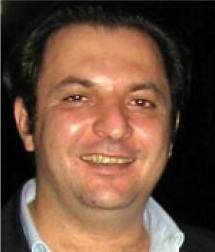(EOHR/IFEX) – The following is a joint letter by 35 members and partners of IFEX and the Arab Working Group to Syrian President Bashar al-Assad:
We, the undersigned organisations dedicated to freedom of expression, call upon the Syrian government to drop the charges against Mazen Darwish at the Syrian Center for Media and Freedom of Expression (SCM). Darwish is facing a military court trial in April 2008. The Syrian government should also allow activists and journalists to freely practice their work without being prosecuted or tried before military courts.
On 17 March, Darwish stood before the Damascus Military Court facing charges of “libeling and insulting the State Administrative bodies” after the Adra Police Station referred him to the Military Prosecution Office. The trial was postponed until 15 April to summon prosecution witnesses to testify. Mazen Darwish is the director of SCM and is a prominent human rights and freedom of expression activist.
Darwish and his colleague Hassan Kamel were detained on 12 January while they were covering violent incidents that took place in Adra, a suburb of Damascus. They were interrogated by the Military Prosecution Office on 14 January, and released on 15 January. The prosecution maintained against Darwish the charge of “libeling and insulting the State Administrative bodies”. Other charges against Darwish have been dropped, as have those against Kamel, who is not being tried.
Darwish was previously subjected to different forms of harassment, such as being denied the right to travel in May and December 2007.
In separate incidents related to the work of SCM, other colleagues have been detained and summoned. Adnan Hamdan, SCM’s programme director, was detained on 13 March 2008 by the Military Security Forces after he was summoned by Manteka Military Security Office for unknown reasons. Hamdan was released on 15 March after he was subjected to a long interrogation concerning his activities. Also, other staff members of SCM were summoned many times for interrogation related to their work. Hani Zaitani, director of the studies department at SCM, was summoned by the Prosecutor’s Office seven times, while Jamil Makhoul, researcher at SCM, was summoned five times.
These incidents come amid an ongoing pattern of harassment and detention of journalists and activists, including Michel Kilo, Anwar al-Bunni, Ali al-Abdullah, Fayez Sarah and Akram al-Bunni, as well as others who have attended a 1 December meeting of the National Council of the Damascus Declaration for Democratic Change (NCDD), an umbrella group of opposition and pro-democracy groups.
Accordingly, the undersigned organisations, who are members and partners of the International Freedom of Expression eXchange (IFEX) and the Arab Working Group, urge the Syrian government to refrain from imposing obstacles to the work of human rights organisations, and also to put an end to military trials for civilians, including human rights activists. The Syrian government should work on strengthening freedom of expression and put an end to all repressive practices against journalists and activists, including harassment, torture and arbitrary detention as an enactment of Syria’s international and constitutional obligations.
Article 38 of Syria’s Constitution guarantees the right of every citizen to “freely and openly express his (or her) views in words, in writing, and through all other means of expression.” They also have the right to “participate in supervision and constructive criticism in a manner that safeguards the soundness of the domestic and nationalist structure and strengthens the socialist system.” Syria has an international obligation to uphold the rights to freedom of expression, association and assembly under Article 19 of the Universal Declaration of Human Rights (UDHR), and as a state party to the International Covenant on Civil and Political Rights (ICCPR).
Signed respectfully,
Adaleh Center, Jordan
Alliance of Independent Journalists (AJI), Indonesia
Arab Archives Institute (AAI), Jordan
Arabic Network for Human Rights Information (HRInfo), Egypt
ARTICLE 19, United Kingdom
Bahrain Center for Human Rights (BCHR), Bahrain
Cairo Institute for Human Rights Studies (CIHRS), Egypt
Canadian Journalists for Free Expression (CJFE), Canada
Cartoonists Rights Network (CRNI), International
Center for Journalism in Extreme Situations (CJES), Russia
Centre algérien pour la défense et la promotion de la liberté de la presse (CALP), Algeria
Conseil National Pour Les Libertés en Tunisie (CNLT), Tunisia
Egyptian Organization for Human Rights (EOHR), Egypt
Filastiniyat, Palestine
Free Expression Ghana (FEG), Ghana
Free Media Movement (FMM), Sri Lanka
Freedom House, United States
Greek Helsinki Monitor (GHM), Greece
Human Rights Watch
Independent Journalism Center (IJC), Moldova
Institute for Reporters’ Freedom and Safety (IRFS), Azerbaijan
International Press Institute (IPI), Austria
Jordanian commission for democratic culture (JCDC), Jordan
Maharat Foundation, Lebanon
Media, Entertainment & Arts Alliance (MEAA), Australia and New Zealand
Media Rights Agenda (MRA), Nigeria
Mizzima News, India/Burma
National Union of Somali Journalists (NUSOJ), Somalia
Observatoire pour la liberté de presse, d’édition et de création (OLPEC), Tunisia
Pakistan Press Foundation (PPF), Pakistan
Palestinian Center for Development & Media Freedoms (Mada), Palestine
Reporters Without Borders (RSF), France
Southeast Asian Press Alliance (SEAPA), Thailand
World Association of Community Radio Broadcasters (AMARC)
World Press Freedom Committee (WPFC), United States
Share this Post

